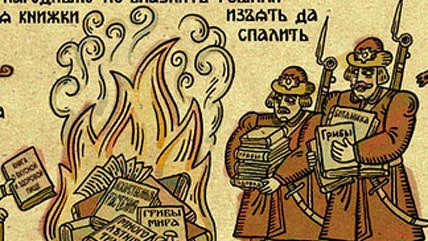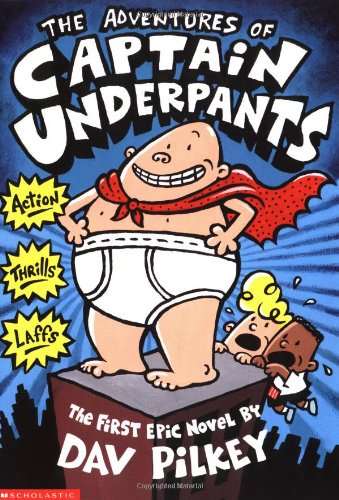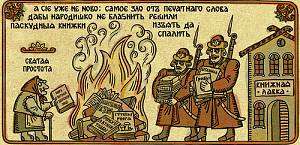Banned Books: Guess Which Book Topped the List Again


The American Library Association is "celebrating" (their words, not mine) Banned Books Week. For the second year in a row, the most frequently challenged piece of literature in the Land of the Free is Captain Underpants.
Why are so many crusaders trying to remove this work from schools and libraries? The three main reasons cited by those who challenge Captain Underpants are its "offensive language," "violence," and "unsuitable" content for its prepubescent target demographic.
However, author Dav Pilkey points out that his "books contain no sex, no profanity, no nudity, no drugs, and no graphic violence (at least nothing you wouldn't see in a 1950's Superman comic book). So what's the big deal?" Pilkey puts in nicer words, but basically, there's a whole bunch of nanny-types out there who never bother cracking his books open for themselves before deciding that an eight-year-old giggling while reading is reason enough to go into literary lockdown.
Much of the top 10 list contains such lightweight reading – Fifty Shades of Grey, The Hunger Games, Bone – that, as Reason's Katherine Mangu-Ward has previously suggested, it's such a banal evil, it's hard to be angry at. If America's politically-and-morally-correct Frankenstein monsters have only enough synapses firing to challenge comic books and pop porno, they're presumably (hopefully) a coalition no longer literate enough to take issue with Brave New World (previously challenged for "insensitivity") or To Kill a Mockingbird (previously challenged for "racism").

This isn't to make light of censorship. The Kid's Right to Read Project, an arm of the National Coalition Against Censorship, says that pro-censorship book challenges rose a dramatic 53 percent in 2013. That organization believes that "each time a book is a removed it reinforces the idea that books and ideas are off-limits if someone doesn't like them. It contributes to a culture where it's better to hide from controversial or difficult topics, than to acknowledge or discuss them."
Nor am I jabbing at the merits of Captain Underpants. As Banned Books Week Chair Judith Platt realizes, the book is "naughty and it's seditious and it certainly is irreverent and challenges authority."
Pilkey agrees. He believes "it is important… to question authority — because, you know, there are villains in real life, and they don't always wear black capes and black hats. Sometimes they're dressed like authority figures. And kids need to know that it's important to question them."
Check out the rest of the challenged books list here.


Show Comments (12)